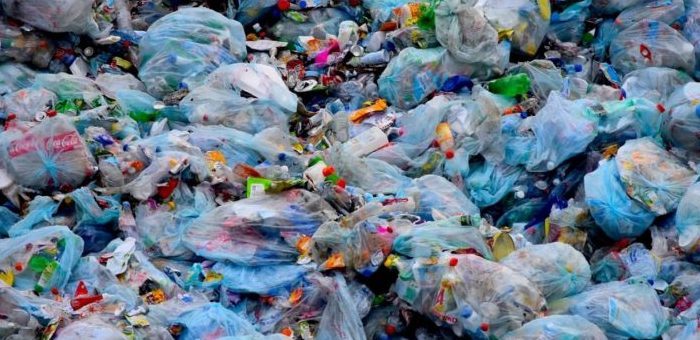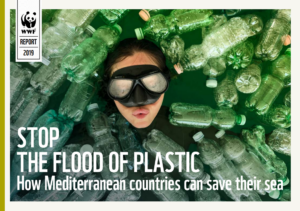Maritime industry loses an estimated €235 million a year from marine plastic debris, while the fishing sector loses close to €138 million per year from plastic pollution, said WWF in a new report. The report reveals that maritime trade and fisheries are responsible for 20% of plastics at sea.
The report, entitled ‘Stop the flood of plastic: How Mediterranean countries can save their sea‘reveals that Mediterranean region is the world’s fourth largest producer of plastic goods, and its residents and visitors generate 24 million tonnes of plastic waste each year.
The costs to maritime industry are incurred by vessel downtime, delays and additional maintenance costs, as ships are particularly vulnerable to collisions with plastic objects, entanglement of floating objects with propeller blades, and clogging of water intakes for engine cooling systems.
Port facilities are also at risk of damage from plastic pollution, including clogging of waterways, which creates delays and incurs cleanup costs.
Meanwhile, the fishing sector loses close to €138 million per year from plastic pollution, as debris can clog boat engines and fishing nets leading to disruption of fishing operations.
The largest cost to the sector is related to vehicle damage and maintenance caused by collision with plastic debris, and delays caused by fishing nets filling up with plastic rather than fish are also incurred.
Key findings
- 22 countries and territories comprising the Mediterranean region produce 10% of all plastic goods, making it the world’s 4th largest plastic producer.
- Plastic production across all Mediterranean countries emits approximately 194 million tonnes of carbon dioxide every year, similar to six times the annual carbon emissions of London.
- 247 billion plastic pieces are floating in the Mediterranean.
- Three Mediterranean countries -Egypt, Turkey, and Italy- account for two-thirds of plastic leaked into nature.
- The equivalent of 33,800 plastic bottles are dumped into the sea every minute
- Every km of coastline receives every day ca. 5kg of marine plastic.
Recommendations
WWF calls on Mediterranean governments to:
- Enter into a legally binding treaty to eliminate plastic leakage into nature by 2030, and support each other in achieving this goal.
- Ban unnecessary and problematic single-use plastic goods, and use extended producer responsibility schemes to hold industry accountable for the downstream impacts of their products.
- Invest in effective waste management systems to ensure that all material is collected, reused and recycled.
- Support the innovation of plastic alternatives and the development of a market for recycled material.
- Promote responsible consumption and proper waste management amongst residents and tourists.
WWF calls on industry to:
- Take responsibility for the full life cycle of plastic products instead of passing the cost of waste on to society and nature.
- Design products that eliminate any unnecessary plastic, and that can be easily recycled and reused.
- Produce goods made of recycled materials, without use of any unnecessary virgin (or new) plastic.
WWF calls on members of the public to:
- Avoid consuming single-use plastic goods, and adopt more environmentally sound alternatives.
- Sort waste following the requirements of local municipalities.
- Use your power to call on government and industry to take all needed actions.
The report was issued by WWF – World Wide Fund for Nature and written by Dalberg Advisors, and the team comprised of Wijnand de Wit, Adam Hamilton, and Arianna Freschi.
Explore more herebelow:





























































